David Blunkett: 'If you're not learning something new every day, then you're not really living.'
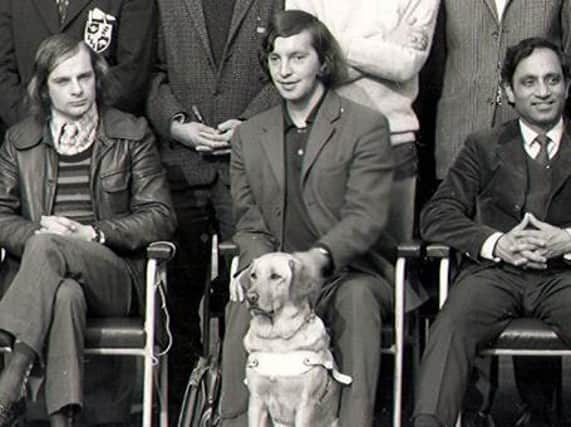

From being at one time the youngest councillor in the country, balancing planning committees with studying at the University of Sheffield, to now taking his seat in the House of Lords, he has seen almost every facet of how the United Kingdom is run.
But it was not the route to the corridors of power that many of the country’s statesmen have taken.
Advertisement
Hide AdAdvertisement
Hide AdAlthough, like many, his politics was formed of his own experience.
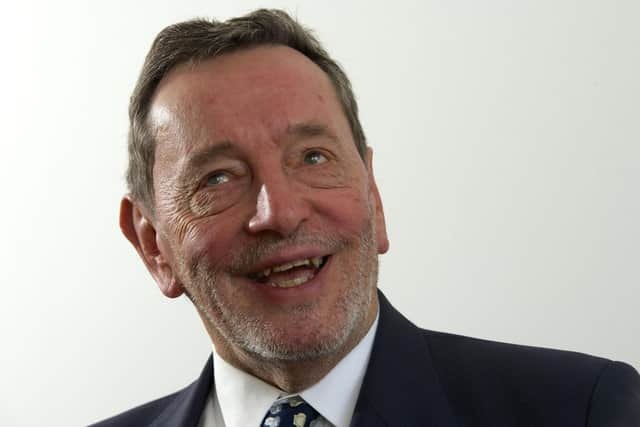

“It was a combination of my own personal circumstances and a teacher who was really, really interested in history,” Lord Blunkett said, speaking to the Yorkshire Post’s political podcast Pod’s Own Country this week.
This teacher, he said, “got me to read and understand the struggle and the challenges that had come over the last 150 years in terms of making real progress, and changing the world for the better.
“And that politics could at its best could do that, it was a vehicle for making a difference to people.”
The personal circumstances he said were “self-evident”.
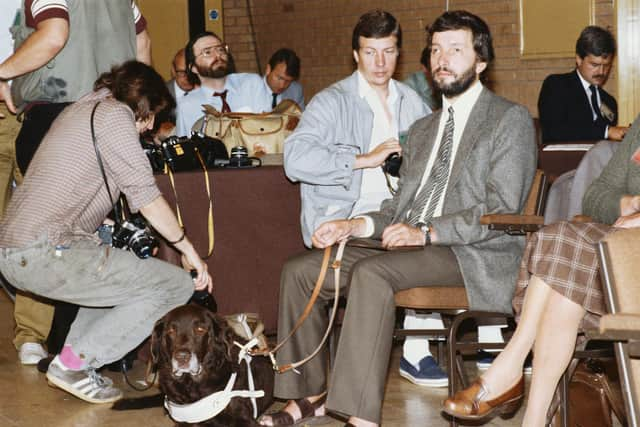

Advertisement
Hide AdAdvertisement
Hide AdHis father Arthur was killed in a work accident when he was just 12, and his mother Doris had a major battle for “any kind of compensation”.
While soon after his grandfather was also killed in an accident.
“I just felt, I have got to make this world a better place,” he said.
“I've got to do something about what I feel, and the experience around me. And people working very hard, with real skill, getting paid quite low wages, and having a struggle.
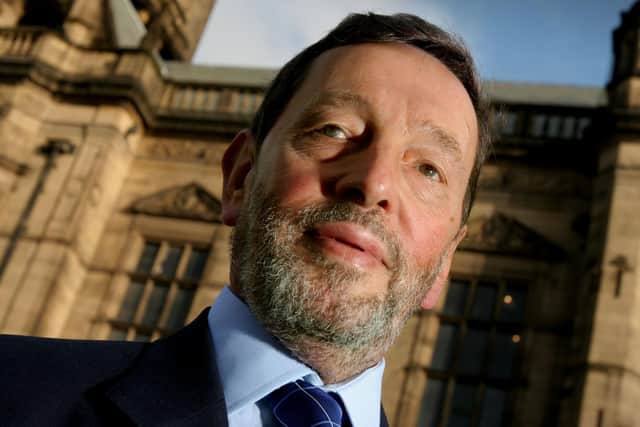

Advertisement
Hide AdAdvertisement
Hide Ad“And that's that's where I came from, and that's what informed my decision to join the Labour Party.”
Decades later, Lord Blunkett said he still felt Labour was his political home, but he admitted: “No political party is exactly right, for any of us. We contribute to it, we are part of the mix. But you choose the party that reflects your values most.
“And mine were about mutuality and reciprocity, I realised I would only get anywhere if I worked really hard, and it was down to me. But I also realised and had this reinforced in spades over the years, you really only succeed if other people are prepared to give you a helping hand.”
Lord Blunkett began his political career as a councillor on Sheffield City Council in 1970.

Advertisement
Hide AdAdvertisement
Hide Ad“It's not unusual now for somebody of 22 to be a councillor,” the 73-year-old said.
“But it was unheard of, I think I was the youngest by over 20 years in Sheffield at the time, and a bit bumptious and a bit full of myself, and a bit unusual in the sense that I couldn't see and they were concerned, ‘how's this young man who's got a high opinion of himself, how's he going to manage? As well as how we're going to put up with the fact that he thinks we're old fogies, and he knows best?”.
But he was keen to stress that he didn’t see being a councillor as purely a route into national politics.
“It’s right in it’s own terms,” he said.
“If you go on the council because you want to be there to do good at that level, you shouldn't just see it as a stepping stone.
Advertisement
Hide AdAdvertisement
Hide Ad“But of course, you do get the experience, you get the wherewithal to learn about how politics is done, because statecraft, actually being able to find a way forward to persuade others of your opinion, to get things through is crucial, otherwise, why would you want to be there?”
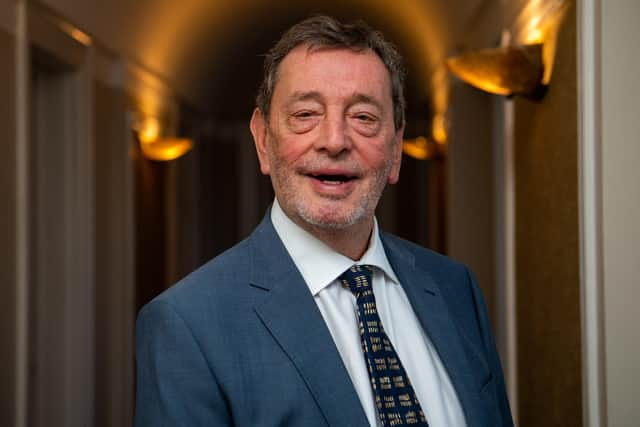

He added: “It's a good grounding in the hope that you won't forget where you came from. And if you're in Westminster, you won't get caught up in a very different kind of bubble to the one that we've been talking about during Covid.”
Educated at schools for the blind in in Sheffield and Shrewsbury he left school at 16 without official qualifications as his schools did not offer public exams, and had to take night classes to gain the exam grades to get a place at the University of Sheffield.
“When I got a job, they let me have day release to college. And I got the qualifications to get to university so I was actually studying political theory at institutions at the same time as being on the council, which was a very good mix,” he said.
Advertisement
Hide AdAdvertisement
Hide AdLord Blunkett became the leader of the council in 1980, a role he held for seven years, and then was elected as the MP for Sheffield Brightside in 1987, and was quickly elevated to the frontbench by then leader Neil Kinnock.
But he was insistent this was not down to Lord Kinnock seeing some great talent in the relatively new parliamentarian.
“It was because he'd spotted a potential thorn in the side,” Lord Blunkett said.
But he was tasked with tackling local Government issues, which at the time were of such importance due to the introduction of the poll tax by Margaret Thatcher and the subsequent rejection of the policy by her party.
Advertisement
Hide AdAdvertisement
Hide AdWhether it be the poll tax as local Government spokesman, Education Secretary in a Government headed by a Prime Minister who pinned his priorities as "education, education, education", or as Home Secretary when the September 11 attacks hit New York, Lord Blunkett had more than his fair share of crises.
“What I both liked about it and was humbled by was the fact that you were there at the very centre of decision making,” he said.
“You could change the world for the better, but you also realise the constraints, and I was humbled by the fact that there were people around me were prepared to give me back,
“I had a very, very good group of special advisers. My private office in both departments were excellent. I was able to build a really good set of ministerial colleagues.”
Advertisement
Hide AdAdvertisement
Hide AdBut he admitted: “I wasn't good with my Cabinet colleagues. I think I always expected to get my way.”
He said: “I was pretty good at building a team. But I wasn't good at being a team player, and I regret that because I've got loads of friends from that era, but I might have come out of Government without the resentment that I know some of my colleagues felt about this ' pigheaded' guy who would never take no for an answer and always wanted his own way.”
And he added: “Tony Blair said to me, you just get used to and become competent in doing the job when nobody wants you to do it anymore, which is a bit sad really, because we learn, we grow, we mature, we find our feet.
“This is true in management, in businesses, through the trade unions, people. If you're not learning something new every day, then you're not really living.”
Advertisement
Hide AdAdvertisement
Hide AdLooking at his party now, Lord Blunkett said he felt many voters were still giving the Conservatives “the benefit of the doubt” from the 2019 election, somewhat fuelled by the coronavirus pandemic.
And he said given the state of the Labour Party last year “it's hard to be brutally critical of that”.
“My criticism is not that [the Government have] made mistakes, because any Government in this circumstance would have made mistakes. It's that, actually, they've forgotten that they govern for Britain,” he said.
Pointing to contracts awarded to Tory-connected firms and what he called “cronyism”, Lord Blunkett also said Boris Johnson had filled his cabinet based purely on whether members were Brexiteers.
Advertisement
Hide AdAdvertisement
Hide Ad“And you can only dismiss talent for so long without the crack showing,” he said.
He added that the Conservatives had “now usefully forgotten” what they had said during the Blair and Brown years about borrowing.
He said: “My defence of our Government was you just needed to take a look after certainly the first 10 years, at the change in everything around you.”
And he added: “If that didn't happen, and clearly it didn't in some parts of the North of England, where dereliction and historical left-behind feeling existed, then we stand condemned by that.”
Advertisement
Hide AdAdvertisement
Hide AdHe said: “We should have worked through with those people. We had projects, New Deal for Communities, all kinds of schemes, they tended to be done top down rather than bottom up, and I used to rail about this even at the time and say, have we not learned anything from community development in the 1970s that if you don't do things with people, firstly, they don't think it's anything to do with them, and secondly, it won't last.”
Still a proponent of the North, Lord Blunkett said he feared the Tories saw so-called levelling up as simply an “electoral imperative”, but he said Labour needed to “look at ourselves” to win again.
“'I've spoken to them, people who went into the polling booth in Yorkshire and in Nottinghamshire and cried when they put their cross for the Conservative candidate.
“Now, that's our fault, to make people cry when they vote against you, is there an indictment of the political party that I love and I've been a member of for over 55 years. So, we've got to look at ourselves and the metropolitan nature of our party.”
Advertisement
Hide AdAdvertisement
Hide AdAnd while he pointed out the Conservative Party was hardly salt of the earth, he said: “They expect more of us, and actually they should, because we claim to be rooted in those communities, we claim that we come from and represent those communities.”
Now, in 2020, he said voters were “prepared now to give us the benefit of the doubt”, dismissing a recent poll which said Labour was making headway in former Red Wall seats.
“They respect that we've got a highly competent, intelligent, thoughtful leader, that doesn't frighten them. But I think we're a long way off having won them back.
“We need definition so that people know what we stand for.
“We need to be able to communicate not from metropolitan London, but in a way that relates to their lives and understands where they're at and what how they feel.
Advertisement
Hide AdAdvertisement
Hide Ad“And when we do that, and we build both the program and policy on the one hand underpinned by our values, and we communicate in an understandable way, then people will return to us.
“I'm convinced we can do it. But it's a mountain to climb.”
Comment Guidelines
National World encourages reader discussion on our stories. User feedback, insights and back-and-forth exchanges add a rich layer of context to reporting. Please review our Community Guidelines before commenting.